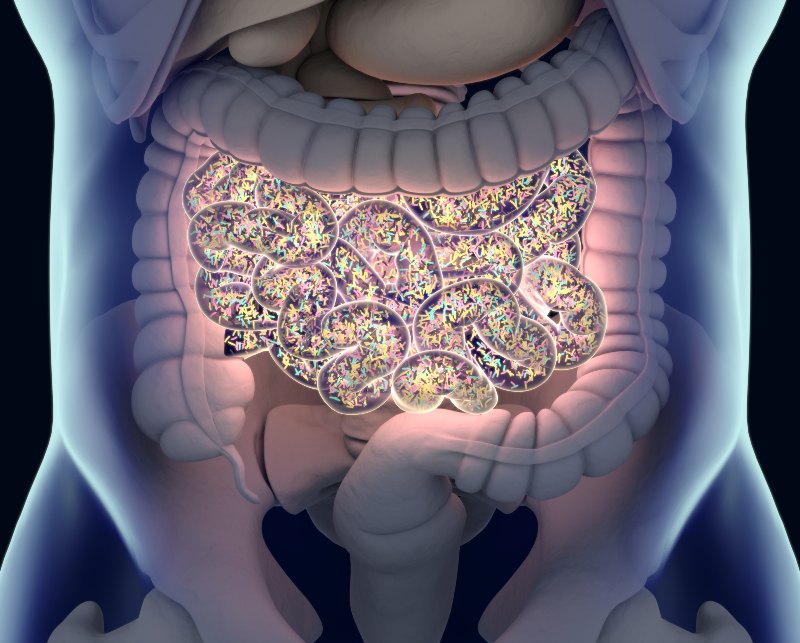Understand Your Gut Microbiome with the Experts in GA

What are Microbiome and Probiotics?
The microbiome refers to trillions of microorganisms residing in your gut, including bacteria, viruses, fungi, and other microbes. This diverse ecosystem plays a pivotal role in your overall health, influencing digestion, immunity, and even mental well-being.
Probiotics, on the other hand, are live beneficial bacteria or yeasts that you can consume through certain foods and supplements. These friendly bacteria are essential in supporting a balanced gut microbiome. Probiotics offer numerous benefits for digestive health and the rest of your body.
The Role of the Microbiome
Your gut microbiome is an incredibly dynamic environment that influences your digestive health significantly. It helps break down food, absorb nutrients, and produce essential vitamins. A healthy microbiome acts as a barrier against harmful bacteria and pathogens, reducing the risk of infections. It also communicates with the immune system, ensuring your body responds appropriately to potential threats.
Disruptions to the microbiome can lead to gut microbiome diseases such as inflammatory bowel disease (IBD), irritable bowel syndrome (IBS), and other digestive issues. Therefore, understanding what gut microbiome is and maintaining its balance is vital for good health. Our GI services can help you with this.
Benefits of Probiotics
Probiotics offer many health benefits by enhancing the composition of your gut microbiome. Some key probiotic health benefits include:
- Improved Digestion – Probiotics aid in breaking down food more efficiently, alleviating symptoms like bloating and constipation.
- Enhanced Immune Function – By promoting the growth of beneficial bacteria, probiotics support your immune system's ability to fight infections.
- Alleviation of GI Disorders – Studies have shown that probiotics can help manage symptoms of IBS and reduce the severity of IBD flare-ups.
- Better Mental Health – The gut-brain axis indicates that a healthy gut microbiome can positively impact mood and cognitive functions.
Sources of Probiotics
Probiotics can be found in various foods and supplements. Fermented foods are particularly rich in these beneficial bacteria. Some excellent sources include:
- Yogurt – A well-known probiotic-rich food that can improve gut health.
- Kefir – A fermented milk drink packed with diverse probiotic strains.
- Sauerkraut and Kimchi – Fermented vegetables that offer a robust mix of probiotics and fiber.
- Miso and Tempeh – Fermented soy products that are not only rich in probiotics but also protein.
- Probiotic Supplements – Available in pill, powder, or liquid form, these supplements provide concentrated doses of beneficial bacteria.
How to Maintain a Healthy Microbiome
- Eat a Diverse Diet – Consuming a variety of fruits, vegetables, and whole grains ensures a wide range of nutrients that promote a healthy microbiome.
- Limit Antibiotics – While necessary at times, antibiotics can disrupt the balance of your gut bacteria, so they should be used judiciously.
- Stay Active – Regular physical activity can positively affect gut microbiome diversity.
- Manage Stress – Chronic stress can negatively impact your gut health, so incorporating stress-reducing activities can be beneficial.
- Stay Hydrated – Drinking plenty of water supports the mucosal lining of the intestines, promoting a healthy microbiome.
Why Choose GI Specialists of Georgia?
Contact Us Today in Atlanta, GA
If you are interested in learning more about how the gut microbiome and probiotics can benefit your digestive health, or if you're seeking effective gut microbiome disease treatment, reach out to GI Specialists of Georgia. Our experienced team is ready to guide you on your journey to better health.
Don't wait to take charge of your digestive health. Contact us today to schedule a consultation and discover how we can support your gut health, digestion & microbiome support needs. Your well-being is our priority, and we are dedicated to helping you achieve optimal digestive health.
Explore our services and take the first step toward a healthier you.
What is Ascites?
Learn More about Ascites
The most common cause of ascites is liver cirrhosis/scarring. Liver cirrhosis/scarring can be secondary to alcohol, fatty liver disease, hepatitis B and C. Cirrhosis causes an imbalance of pressure between the circulation (high-pressure system) and the abdominal cavity (low-pressure space). This pressure gradient along with decreased protein production (due to cirrhosis) results finally in ascites.
Ascites can also be a result of heart disease in the form of congestive heart failure or valvular heart disease. Ascites can also be a result of protein loss via urine from chronic kidney disease. Malignant ascites is a result of cancers.
Usually, the ascites if in large quantities results in cosmetically disfiguring large belly and easily identified on physical examination. However if the ascitic fluid is less than 500 cc, physical examination assisted with an ultrasound examination can be used to diagnose the presence of ascites.
Ascites is a symptom and diagnosing the underlying illness resulting in ascites is the key. Usually, blood work and occasionally liver biopsy is needed to diagnose the underlying liver condition.
Treatment depends on underlying conditions. Controlling the underlying disease treats ascites due to heart or kidney disease. Malignant ascites is treated with chemotherapy or radiation therapy of underlying cancer. Since chronic liver disease is the major cause of ascites, will focus on the treatment of ascites secondary to chronic liver disease.
Treatment of ascites secondary to liver disease has a 4-pronged approach:
- Restricting dietary intake of salt to less than 2 gm/day and restricting dietary fluid intake to less than 2 liters/day.
- Diuretic medications including spironolactone and furosemide. Usually, medication doses are adjusted based on kidney function and electrolytes as noted on blood tests.
- Therapeutic paracentesis is a procedure wherein the ascitic fluid is drained periodically via a skin incision. People not responding to only diet and medications, benefit from large volume paracentesis done periodically.
- Surgery in the form of transjugular intrahepatic portosystemic shunts (TIPS) is reserved for patients not responding to the above treatments. TIPS procedure is performed in radiology by an interventional radiologist wherein a shunt is placed in the portovenous (liver veins) and systemic veins (veins returning blood from the liver to heart), thereby decreasing the portal pressures (within the liver). Since the blood is being bypassed from the liver, this procedure may result in worsening of hepatic encephalopathy (term used to describe the mental confusion resulting from advanced liver disease).
Finally, liver transplantation for advanced cirrhotic liver disease can be considered at liver transplant institutes.
Schedule an Appointment with Our Atlanta-Area Gastroenterologists
"*" indicates required fields

